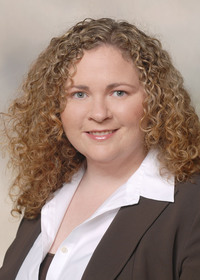Information Possibly Outdated
The information presented on this page was originally released on November 23, 2005. It may not be outdated, but please search our site for more current information. If you plan to quote or reference this information in a publication, please check with the Extension specialist or author before proceeding.
MSU offers help to child-care centers
MISSISSIPPI STATE -- Storm recovery means addressing many issues, but one of the first is restoring adequate, quality child care in communities affected by Hurricane Katrina.
“Before parents can return to work and before children can resume a more normal life, child-care centers have to be safe and operational,” said Louise Davis, child and family development professor with Mississippi State University's Extension Service.
MSU's Early Childhood Institute, the Extension Service and the School of Human Sciences are joining with other public and private agencies to help get centers back on their feet.
“More than 200 centers were destroyed or significantly damaged on Aug. 29 when Hurricane Katrina hit our state,” Davis said. “Buildings, toys, educational materials and supplies accumulated over many years were lost in one day.”
Since the storm, MSU has been spearheading an effort to re-supply centers with a wide variety of educational materials. The Children's Defense Fund, Mississippi Public Broadcasting Network, Save the Children, the National Association of Child Care Resource and Referral Agencies, the Mississippi Conference of the United Methodist Church and Mississippi Early Childhood Association are taking part in the effort called “Embrace Mississippi Children: Hurricane Relief.”
As part of the Embrace project, MSU representatives organized special workshops to bring information and supplies and to assess future needs. The first, held Oct. 22 in Hattiesburg, attracted almost 200 people from centers in the storm-damaged counties.
“So many of these centers lost everything, and in many cases, insurance will not cover their losses,” Davis said.
The workshops bring together officials who can speak to the most pressing issues: mold and mildew concerns, licensing issues, rebuilding curriculum and other needs for re-establishing their centers. Additional workshops are planned in the coming months to help re-establish centers.
Of the 220 licensed centers in the six southern-most counties, 72 remained closed as of Nov. 9.
Cathy Grace, director for MSU's Early Childhood Institute, said child-care centers and family-based programs are struggling to recover.
“Many of these businesses have ongoing expenses and payments that are due while there is no income,” Grace said. “We are conducting needs assessment surveys to learn exactly what each center needs. Then we hope to secure appropriate donations to match those needs.”
In addition to the experts brought in to address concerns during the workshops, Grace and Davis deliver kits to each center and family day care represented. The kits contain books with accompanying activities, video tapes, teaching materials and handouts to help re-establish the curriculum base.
“Each of these centers are part of the community backbone, and they help people return to work,” Grace said. “If people have a job but no place for their children to be educated during the day, they cannot return to work.”
Dee Dowdy, who operates two child-care centers in Jackson County, attended the first special workshop in Hattiesburg. In addition to the information provided, Dowdy received boxes of school supplies for 1- to 3-year-olds.
“My staff and I just cried as we saw the things we were getting, because we had nothing. They supplied us with what we lost and more,” Dowdy said. “These toys and supplies were not used items, they were brand new. The children needed some normalcy because a lot of things in their lives are not normal. These donations are helping.”




